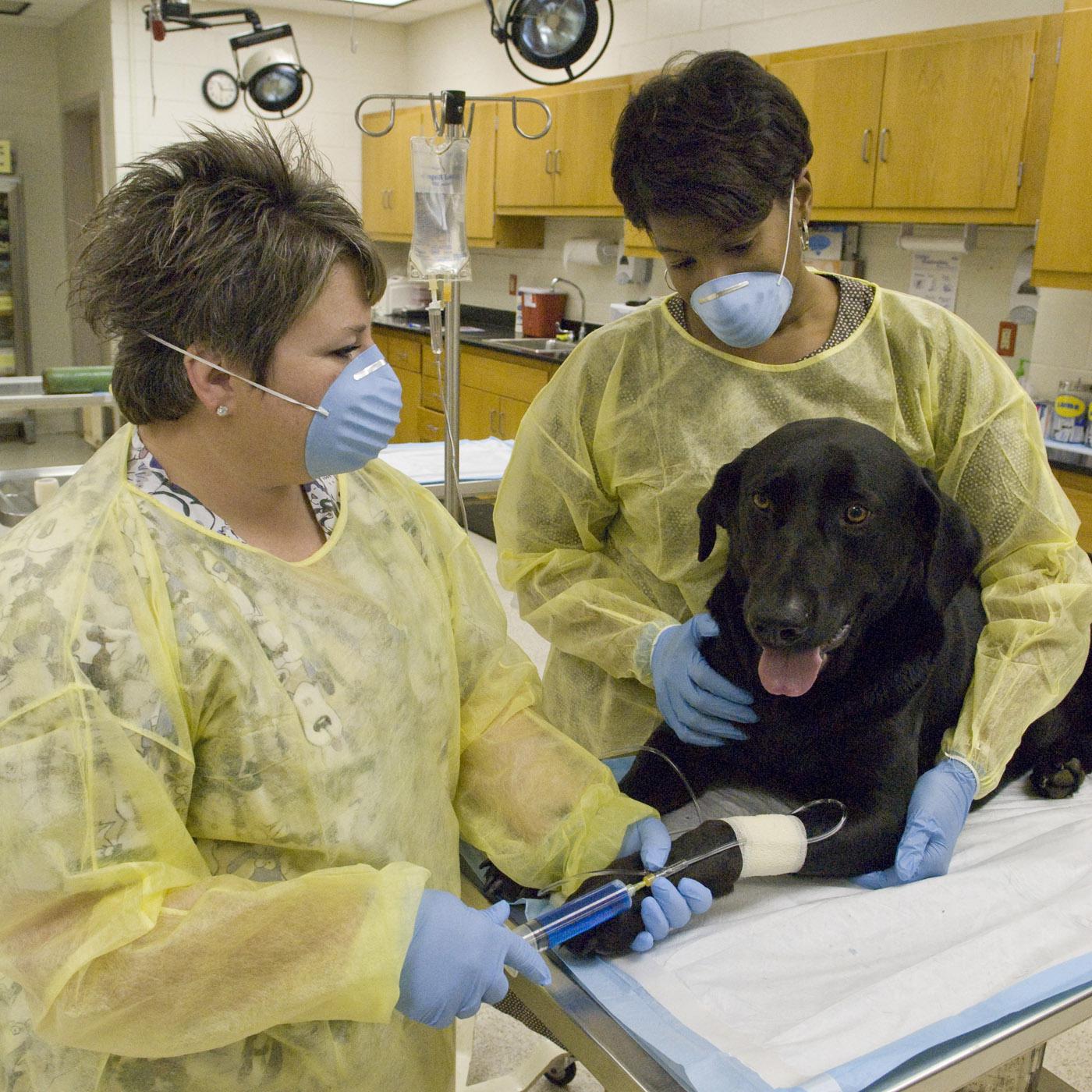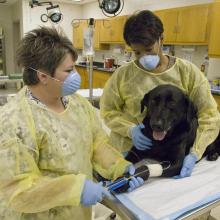Information Possibly Outdated
The information presented on this page was originally released on September 18, 2008. It may not be outdated, but please search our site for more current information. If you plan to quote or reference this information in a publication, please check with the Extension specialist or author before proceeding.
MSU veterinarian offers pet owners new hope
MISSISSIPPI STATE -- Pet owners who discover their small animals have cancer have more hope than they would have had just a decade ago.
Mississippi State University's College of Veterinary Medicine has been part of a nationwide explosion in the study of oncology in dogs and cats. Veterinarians, who in years past could provide only a shoulder to cry on, now have many treatment options to offer pet owners.
“Treating cancer requires a holistic approach: to do it right, you need lots of facilities and lots of people,” said Dr. Andrew Mackin, CVM Ward Chair in Small Animal Medicine.
MSU has been building both for quite some time. Accurate diagnostic equipment is one of the prerequisites for effective cancer treatment. The MRI technology added within the past year and the CT scanner already in place allow clinicians to diagnose cancer earlier than ever before. These technologies, along with ultrasound, can offer information about what stage a cancer is in and whether or not it is operable.
“But diagnosing is the easy part compared to treating it,” Mackin said. “Services like physical rehabilitation and intensive care are especially important to cancer patients and are already available, but MSU isn't stopping there.”
The veterinary college is now the only source in Mississippi for a melanoma vaccine for dogs. Still in the research phase, the vaccine is available only through specialty services like the one at the CVM. It is used to treat rather than prevent melanoma. Though not a cure, the vaccine can increase quality of life and lengthen life expectancy for a diagnosed animal by six months or more.
“Cancers with no treatment options today might be treatable in just two years,” Mackin said.
Keeping up with the latest cancer treatment options is difficult, given that oncology is one of the most rapidly evolving areas of veterinary medicine. That is where MSU-CVM alumna Dr. Kim Johnson comes in.
Johnson joined the CVM staff this fall and is the college's first and only board-certified oncologist; in fact, she is the only boarded veterinary oncologist in the state. Mackin said she is the new “head coach” of the existing team of internists and surgeons who are treating cancer patients referred to MSU.
“The team approach of oncology is unrivaled by a lot of the other specialties and drew me to the field,” Johnson said. “I've had several family members lose their lives to cancer, and watching their battles sparked my interest in comparative oncology, which uses companion animals as models for human cancers.”
Today she sees herself as an advocate for patients and their quality of life. She has a passion for her clients, their owners and her college.
“I want to see Mississippi State ranked up there with the top schools in the country. I want to give back to my alma mater and to be one of the individuals who helps get it to that next level,” Johnson said.
Along with expanding the existing oncology curriculum, Johnson provides increased continuity of care for cancer patients, adding to the specialty internship position for oncology already in place. Mackin looks for that program eventually to expand from a one-year internship position to a three-year residency program.
The CVM also is raising funds to obtain the equipment and personnel necessary to offer radiation therapy not yet available in Mississippi.
Eventually the oncology service, now part of small animal internal medicine, will become a stand-alone service, perhaps helping to realize Johnson's dream.
“I hope that one day cancer will no longer be perceived as a one-word death sentence but as a chronic disease that can be successfully controlled,” Johnson said.
Contact: Dr. Kim Johnson, (662) 325-3432


